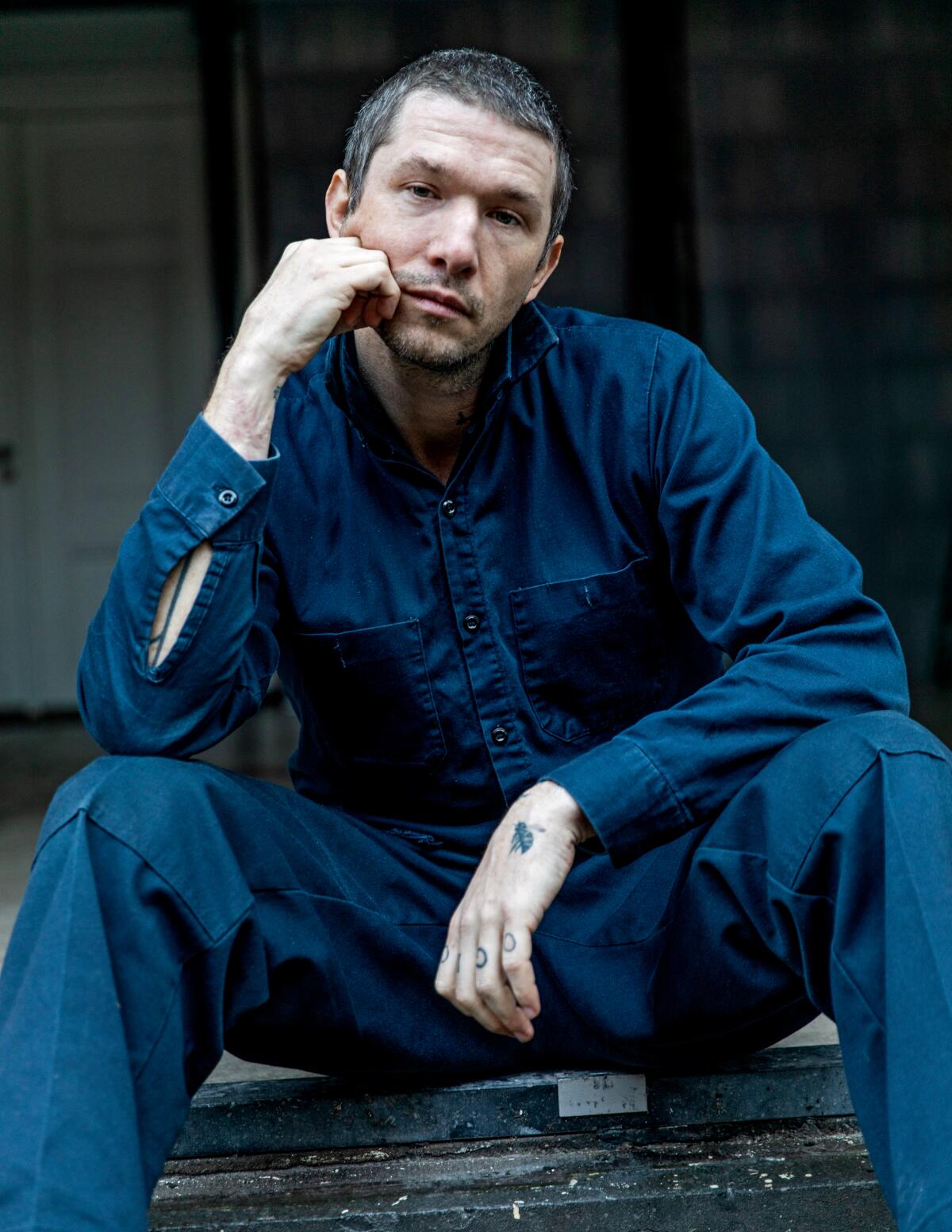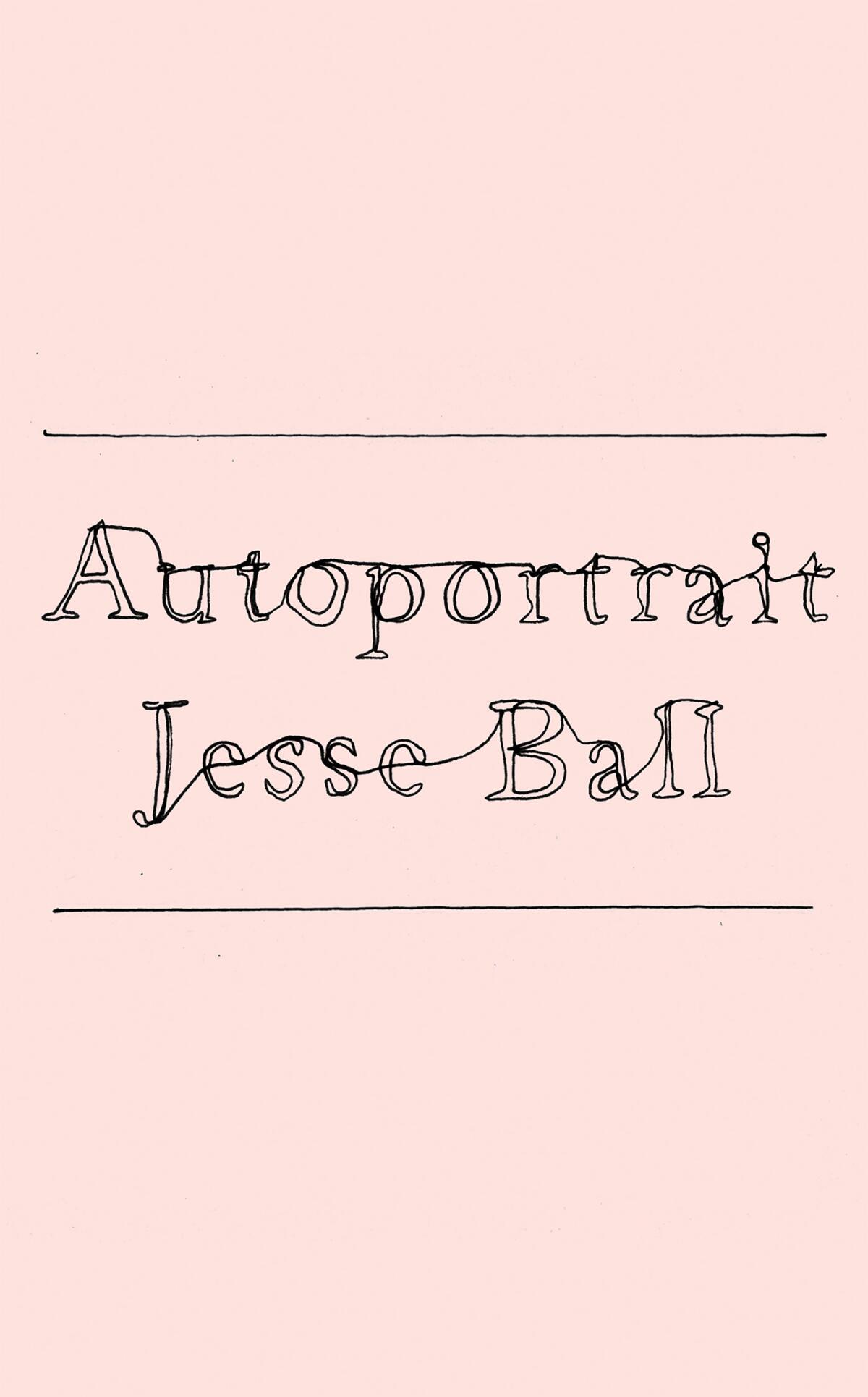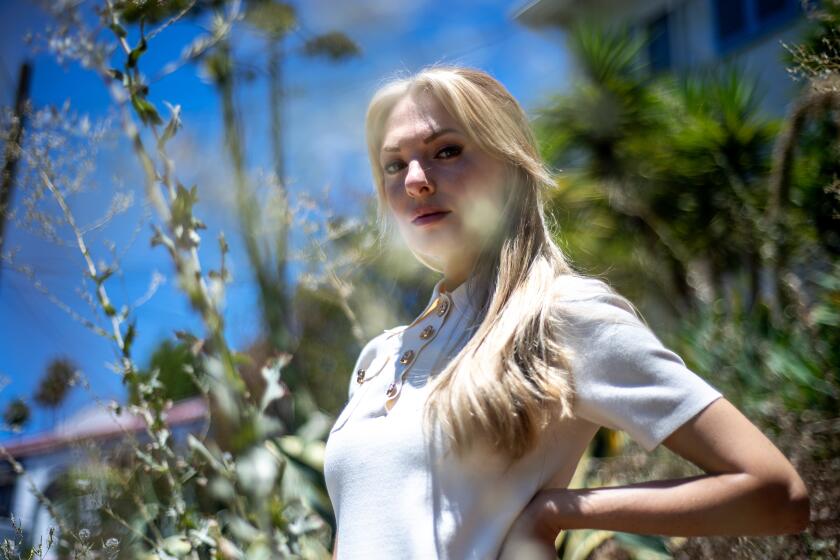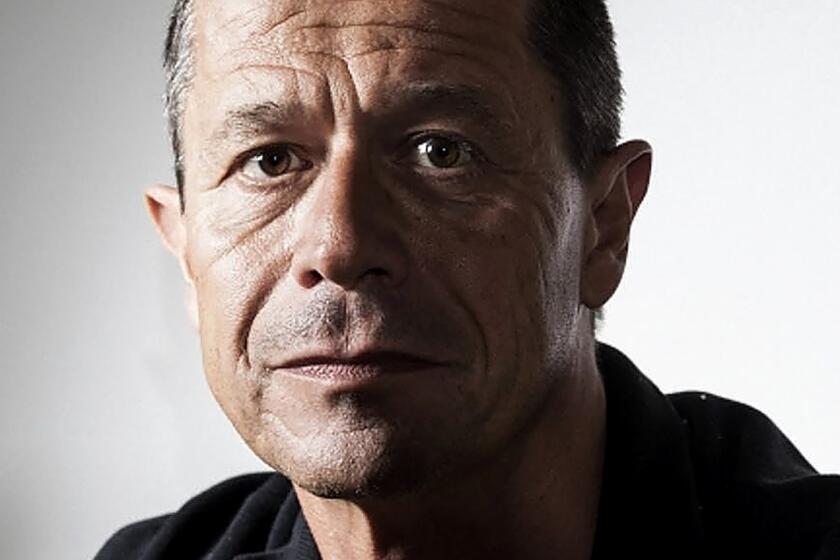Novelist Jesse Ball takes a wild swing on a memoir. It’s brave and a little cringe

- Share via
On the Shelf
Autoportrait
By Jesse Ball
Catapult: 140 pages, $20
If you buy books linked on our site, The Times may earn a commission from Bookshop.org, whose fees support independent bookstores.
A young Jesse Ball discovers a dead dog. Its owner is a classmate who has never deigned to speak to him, but still Ball helps her and her mom put the body in a plastic bag. “Neither of them thanked me,” Ball writes — another brutal moment in his challenging new memoir, “Autoportrait.” “They got in the car and drove away and the girl never mentioned it again. I think she thought that the sort of person I am is the sort of person who does that for the sort of person she is. I suppose she was right.”
Who is Jesse Ball? The answers come fast and weird in this thoughtful, bleak, impressionistic new work, a slim but powerful homage to French photographer Edouard Leve’s 2005 memoir “Autoportrait” — which, Ball explains, took “an approach that does not raise one fact above another, but lets the facts stand together in a fruitless clump.”
At first, it can feel like a game, the business of deciding which facts make the cut, in what order and to what effect. The game can feel unhelpful, like writing a whole novel without the letter E, as Ernest Vincent Wright famously did in 1939’s “Gadsby.” But such tricks have also yielded successful results, including Padgett Powell’s nearly perfect 2009 novel, “The Interrogative Mood,” composed entirely of questions, or Robert Coover’s 1981 story collection “Spanking the Maid,” which retold the same scene over and over again — each time in a slightly new way.
In ‘The Morning Star,’ Knausgaard’s first major novel since his semi-fictional ‘My Struggle,’ psychodramas are outshined by a cosmic disturbance.
There is no doubting what Ball is capable of under less constrained circumstances. In novels such as “Census” and “Silence Once Begun,” Ball has shown himself to be a master stylist, among his generation’s most ambitious and provocative, with big ideas and a proud heart to match. But can a book as blunt and angular (and at times repugnant) as “Autoportrait” ultimately deliver the same kind of confidence and simplicity?
At times Ball can come off as a bit of a monster. “It has been a long time since I got revenge on anyone, though, at least fifteen years,” he writes, leading himself to wonder: “Does that mean I am less engaged in my life?”

There is a dark wit embedded in such candor, a monster that maybe lurks inside all of us. In more vulnerable moments, it feels like trauma. “I have night terrors,” he shares elsewhere, “and have had them since around 1990 when my brother went to the hospital and was there made quadriplegic. I have migraines, sometimes once or twice in a week, sometimes not for a month. When I do, I vomit and roll on the floor like a dog.” The collisions of severe, unvarnished facts start to build a larger idea about how we live — or how we fail to live fully.
There are also lighter moments, touches of humor or even epiphany. There is Ball’s take on the Olympics as “a cross between the Donner party, the Salem witch trials, the invention of penicillin, and making a sandwich.” There is also the odd way he smashes up an experience of empathy with the joy of looking up at the sky:
“The demonstrable force of a person’s empathetic insight is rarely visible, but when it is, as it was in my friend, it is a shock. You must change yourself to match it, or you must blunt yourself to ignore it. Once in Gardur, I came out of a building with my wife and the sky was full of turning birds … there were people in the street going back and forth in the face of this spectacle, and to them it meant nothing. They could not even see it.”
This last comment bears a trace of self-aware arrogance (all these others so blind to wonder!); the book feels least interesting when this particular strain of Ball’s personality comes to the fore.
Tess Gunty’s novel, “The Rabbit Hutch,” follows a brilliant, troubled young woman and charts American decline. The writer’s journey is another story
“My hunches about people are often correct, in fact, uncannily so,” he writes. “This means it is especially bad when I am wrong.” Elsewhere it just sounds like oblivious white privilege: “I have never been afraid of what would happen if I went to prison… I am always surprised when I get a speeding ticket, because, for the most part, I manage to avoid them very well.” Now why might that be? The answer is somewhere between bird-filled sky and the solipsistic depths of the soul.
And yet, buried deep, the reason the book is worth studying, is its central tension. It turns out that not only has Ball always felt antisocial, uncomfortable about his body, and unsure of what life should look like. It’s also true that, at 39, award-winning, tenured and beloved, he still doesn’t feel hopeful about how much even an almost perfect sentence can accomplish.
For all his formal risk-taking and most peculiar stylistic choices, it probably says something that the most tantalizing moment in “Autoportrait” may be the one containing the seedlings of a plot. It’s a diamond-sharp memory, involving his mom and a New York City restaurant that’s always taken special care of Ball, the owners and staff taking elaborate steps to show him how much they appreciate his business. But for a reason Ball decides not to share, it all falls apart.
“This gentle regard all came to a halt one day under circumstances too painful for me to relate,” he writes. Will he share more? “In any case,” he continues, “my order at the restaurant was generally vegetable steamed dumplings…” He doesn’t give you more, and the decision feels cruel.
At another restaurant, this time in Chicago, Ball learns that his favorite waitress has died. “Although this was a shock to me,” he writes, “I simply let my fingers stroke the plastic of the booth and the moment washed over me.”
This a brave book that is also a little bit insane. There is strength in it, and cleverness and nearly unbearable honesty, yet the enduring aftertaste of such gristly tidbits produces little more than an intense desire to give Ball a big hug.
‘Yoga’ charts true-crime master Emmanuel Carrère’s journey from intensive meditation to mental breakdown — but leaves out the divorce that derailed him.
Deuel is a continuing lecturer in the writing programs at UCLA.
More to Read
Sign up for our Book Club newsletter
Get the latest news, events and more from the Los Angeles Times Book Club, and help us get L.A. reading and talking.
You may occasionally receive promotional content from the Los Angeles Times.












